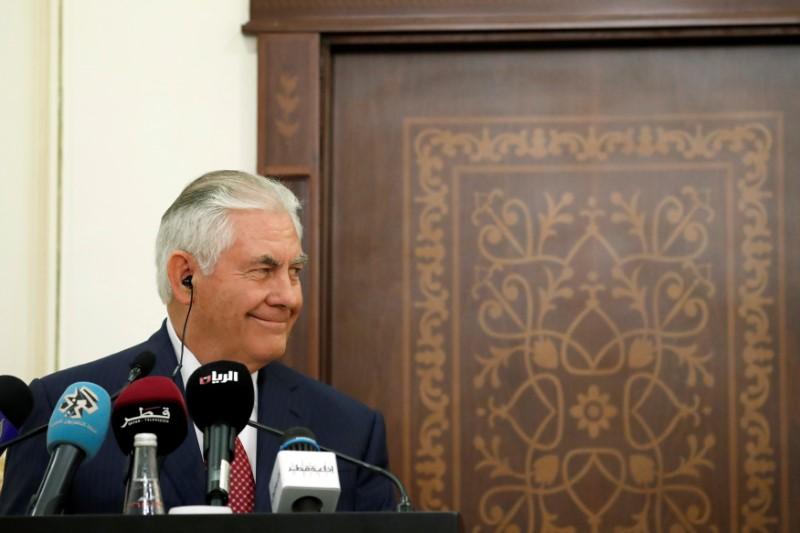
The Trump administration, increasingly concerned that the 74-strong coalition it cobbled together to destroy the Islamic State group is losing sight of the prime objective, is pressing its partners to refocus efforts, overcome rivalries and concentrate on the task at hand: the eradication from Iraq and Syria of the extremist group.
The alarm US Secretary of State Rex Tillerson plans to sound at a coalition gathering in Kuwait on Tuesday comes with the fight at a critical moment and the mission shifting from offensive military operations to stabilization. Distractions are adding up, such as Turkey’s fighting with U.S.-backed Kurdish rebels in Syria and renewed spillover from Syria’s civil war. Meanwhile, hostilities between noncoalition actors — Iran, its proxies in Syria, and Israel — risk creating a new conflict in an already crowded battlespace.
What will Tillerson’s message to America’s allies be, US officials say? “Eyes have to be on the prize.” The prize, according to one senior official: “The enduring defeat of ISIS.”
Anything that hinders that goal also gets in the way of broader objectives like a political transition in Syria that ultimately leads to an end of the war and blunts Iranian behavior throughout the region. “It’s complicated enough as it is. Let’s not make it more so,” the official said in describing the administration’s view.
That official and others who previewed Tillerson’s objectives for the meeting were not authorized to do so publicly and spoke on condition of anonymity.
Rising tensions between the US and NATO ally Turkey over Turkish military operations against the Kurds are a primary concern and Tillerson will end his five-nation swing through the region in Ankara on Friday after stops in Jordan and Lebanon. Turkey’s foreign minister said Monday that Tillerson’s visit, which follows a similar trip by national security adviser H.R. McMaster, comes at a make or break time for relations.
“Our relations are at a very critical stage,” Melvut Cavusoglu said. “Either we will improve ties or these ties will totally break down.”
Ankara is riled over Washington’s support for the Syrian Kurdish People’s Protection Units, or YPG — the top U.S. ally in the fight against the Islamic State group. Turkey considers the YPG a “terrorist” group linked to Kurdish insurgents fighting within Turkey’s own borders.
The US officials allowed that the talks in Ankara would be difficult. But they maintained, as Tillerson and others have in the past, that the US appreciates Turkey’s legitimate security concerns. However, they also stressed that addressing those should not come at the expense of the anti-IS mission. If the Kurds feel threatened, the officials said, they will move their forces away from Islamic State fronts, prolonging the fight.
In addition to keeping the fight against ISIS in Iraq and Syria on the front burner, Tuesday’s meetings will also focus on preventing the spread into Europe and elsewhere of retreating IS fighters, according to the officials. The coalition plans to unveil a blueprint for boosting intelligence and information sharing and law enforcement cooperation to halt the flow of those fighters, the officials said.




